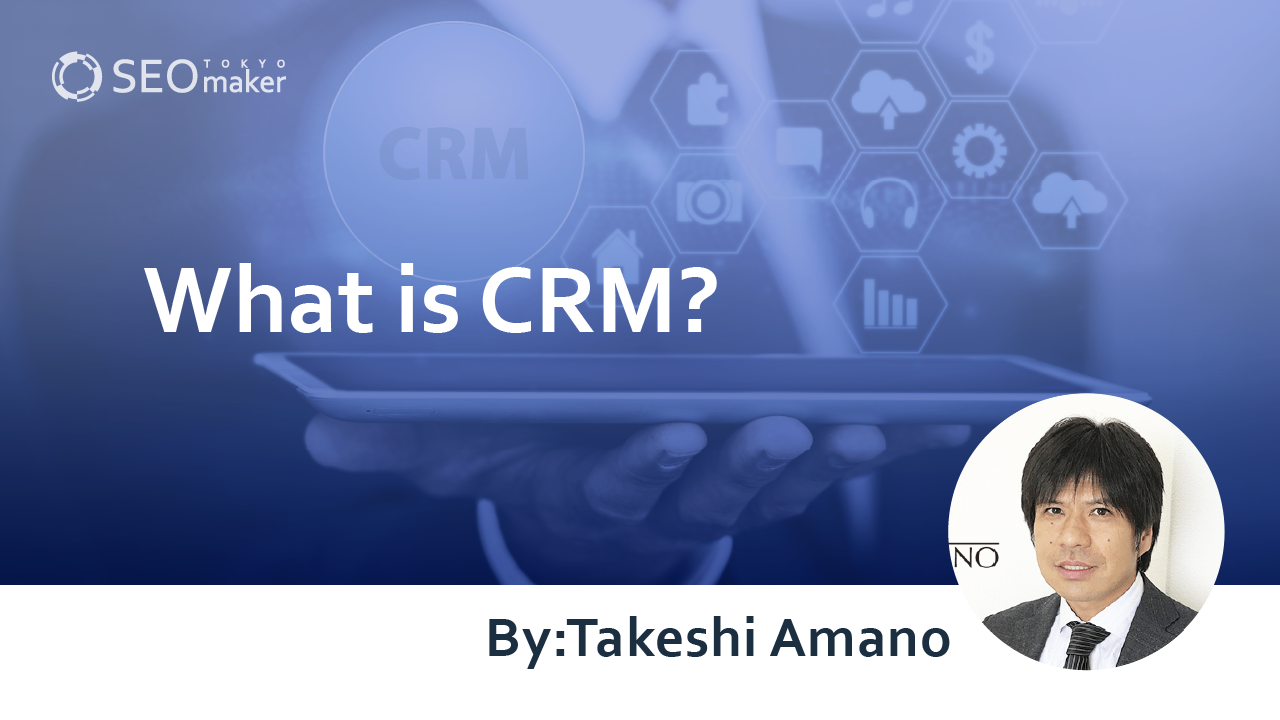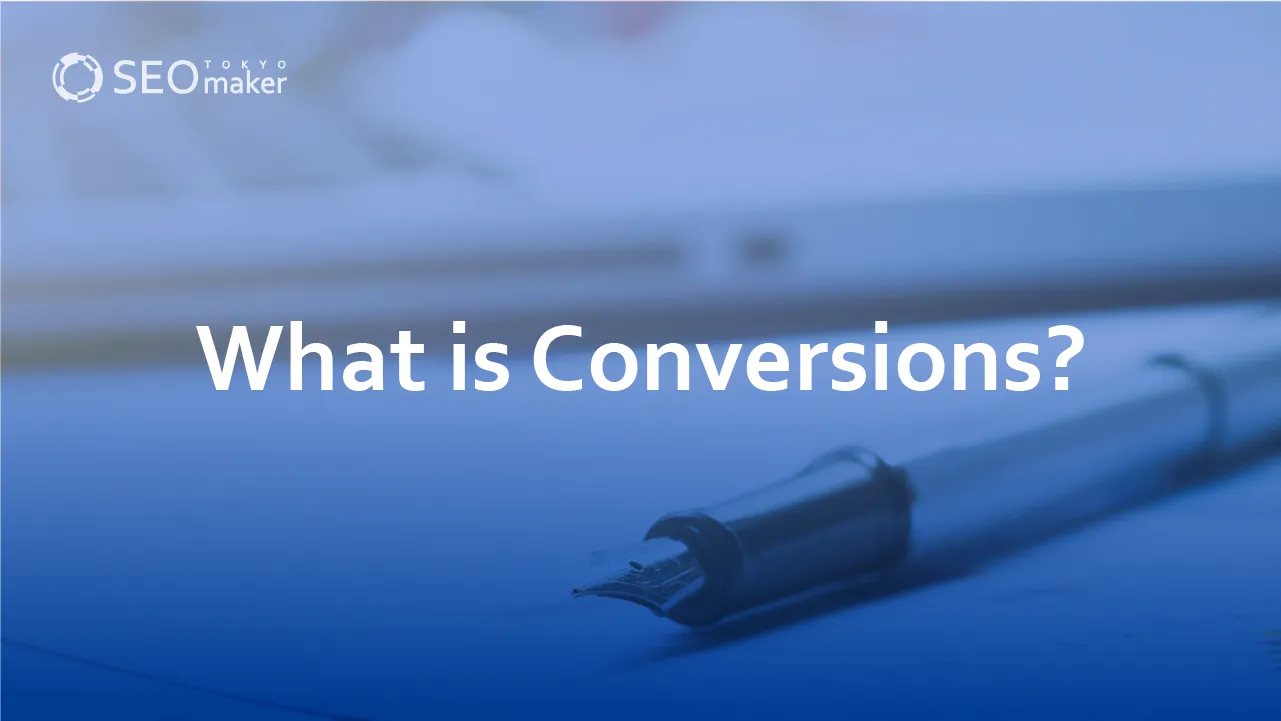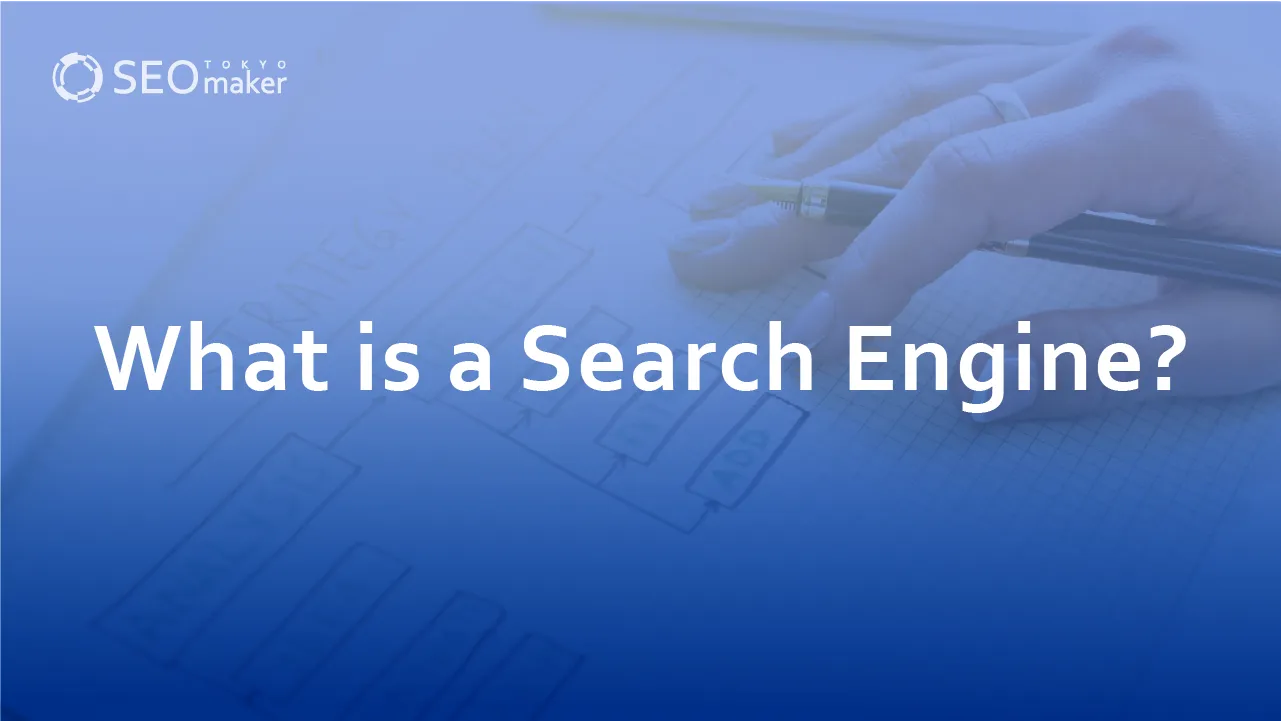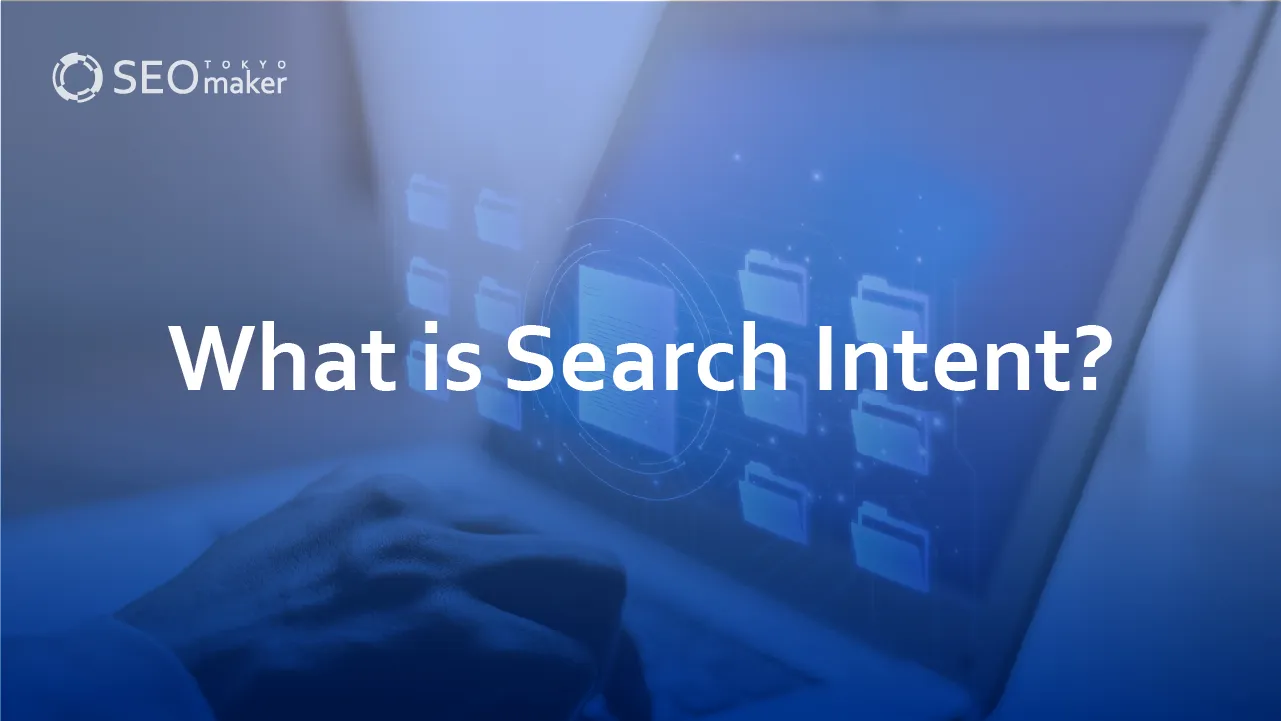What is CRM? An Explanation of Customer Management Systems! Recommended CRMs
contents
- 1 What is CRM (Customer Relationship Management System)?
- 2 Advantages and Disadvantages of Implementing CRM (Customer Relationship Management System)
- 3 Differences Between CRM, SFA, and MA
- 4 CRM (Customer Relationship Management System) Functions
- 5 Points for Selecting a CRM System
- 6 Top 5 Popular CRM/SFA/MA Compared
- 7 Frequently Asked Questions
- 8 Summary

CRM stands for “Customer Relationship Management,” which means managing relationships with customers. It is known as a customer management system and is used as a tool for managing customers in business.
By improving your site’s SEO, you can increase traffic to your site and boost conversions. CRM tools are then used to manage the customer data gathered in this way.
For those involved in sales, CRM is recognized as an essential management tool, along with MA (Marketing Automation) and SFA (Sales Force Automation).
When classifying business processes, SFA manages the process from lead conversion to order receipt, while CRM manages after the order is received. In this article, we will explain CRM in detail.
What is CRM (Customer Relationship Management System)?
When you hear “CRM,” you might find that not many people can clearly explain its meaning. One reason for this is that the meaning of “CRM” varies slightly depending on the perspective.
Meaning
CRM (Customer Relationship Management) has two meanings
- Strategies to build and maintain good relationships with customers.
- Tools or systems for managing customer relationships.
In a broad sense, it refers to managing relationships with customers, that is, customer management. It means collecting and consolidating customer information and history and providing appropriate responses to each customer to maintain and promote good relationships with them.
In a narrow sense, it refers to tools or systems for customer management. To practice CRM in a broad sense, it is necessary to consolidate customer information and provide appropriate services to each customer. This is where CRM as a tool plays a role. In this article, we will mainly introduce CRM as a tool.
Advantages and Disadvantages of Implementing CRM (Customer Relationship Management System)
What are the advantages and disadvantages of utilizing CRM tools? Let’s look at it from the perspective of operational costs and customer satisfaction.
Advantages of Implementing CRM (Customer Relationship Management System)
First, let’s explain the advantages.
Easier sharing of customer information
With CRM tools, customer information that was originally managed independently by representatives or departments can be managed centrally on the system. Because the information is visible, it can prevent insufficient management or inappropriate follow-up by representatives.
Also, since data can be checked simply by accessing the system, it eliminates the need for data sharing between departments and prevents troubles when representatives are absent. The ability to easily share data with necessary people is an advantage.
Improved operational efficiency
CRM systems are generally equipped with functions such as data management, email distribution, and data analysis. Since tasks such as data analysis and customer information management, which were previously done manually, are performed on the system, the time spent on these tasks can be redirected to other tasks, leading to overall improvement in operational efficiency.
In other words, it can reduce the personnel costs that were previously necessary and prevent the loss of customers due to delayed responses.
Furthermore, by analyzing past data accumulated in CRM, it is also possible to run the PDCA cycle for process improvement.
In this way, utilizing CRM can lead to improvements in business processes and overall corporate strategy.
Improving Customer Satisfaction
Managing and analyzing customer data with a CRM system allows you to provide appropriate services tailored to each customer’s needs.
Providing the right service leads to increased customer satisfaction. In other words, by utilizing a CRM system, you can nurture valuable customers.
Disadvantages of Using CRM Tools
While CRM has many advantages, what are the disadvantages?
Costs of Implementation and Operation
One of the disadvantages of CRM is the financial cost of introducing and operating a new CRM system. The more features, faster processing speed, and larger data capacity, the higher the cost tends to be.
Moreover, CRM systems aimed at improving customer satisfaction and nurturing valuable customers may not yield immediate results after implementation, so it is essential to tolerate the running costs and continue using the system until the effects appear.
Need for Internal System Organization
Even if a CRM system is introduced, it will not take root without a well-organized workflow. It is important to simultaneously establish an internal system for CRM operation, such as a mechanism for centralized customer information management, manuals for system operation, and employee training.
Additionally, the detailed functions vary depending on the system. It is necessary to thoroughly consider which functions are needed for your company and introduce an appropriate system.
Differences Between CRM, SFA, and MA
Let’s understand the differences between CRM, SFA, and MA.
CRM (Customer Relationship Management System)
CRM generally refers to IT tools for “customer management” focusing on the relationship between the company and its customers. CRM as a tool is expected to manage, accumulate, and analyze customer information such as names, attributes, purchase and inquiry histories, and use this information to provide products or services that customers seek and build good relationships with customers.
SFA (Sales Force Automation)
SFA stands for “Sales Force Automation.” It is known as a tool that provides detailed sales support by predicting the next actions to take, improving sales efficiency and productivity, based on the daily activity input by sales representatives. It allows the visualization of sales activities.
Using SFA, you can create sales routes, manage schedules, and monitor sales progress.
MA (Marketing Automation System)
MA is designed to manage and complete all marketing activities with a single tool. It handles SEO measures, web advertising, and SNS for lead generation, manages lead nurturing through newsletters, and performs site analysis and effectiveness measurement, all within one tool.
Related Articles: What is Marketing Automation (MA)?
Differences in Functions Between SFA and CRM
The differences between SFA and CRM can be better understood by focusing on their functionalities.
SFA (Sales Force Automation) Functions
SFA functions can be broadly classified into “project management functions” and “sales efficiency functions.” Project management functions include tracking the progress of deals, such as “what product/service was proposed to whom, when, and at what price,” reporting on closed deals, and checking the overall goal achievement rate of the sales department.
Based on this information, it is possible to predict how much revenue can be achieved. Sales efficiency functions support daily sales tasks, such as creating sales reports and quotations.
On the other hand, CRM functions can be broadly divided into customer data management, promotion, and customer support functions. Customer data management functions allow you to manage and analyze customer attributes and behavior history, while promotion functions are used for customer approaches, such as promotional campaigns and email distribution.
Customer support functions can be used for various tasks related to customer surveys, seminars, and events.
<<CRM Functions>>
- Customer Information Management
- Email Distribution
- Scenario Setting
- Form Creation
- Reminder Emails
- Website Creation
- Survey Research
<<SFA Functions>>
- Customer Information Management
- Sales Reports
- ToDo Management
- Task Allocation
- Quotation Creation
- Contract Creation
- Sales Forecasting
- Prospect Evaluation
- Report Creation
- Dashboard
Comparing CRM and SFA functions makes their differences clearer, especially in how customer information is outputted.
Differences in Management Scope Between CRM and SFA
Even though both systems manage customer information, their scopes differ. Let’s look at the information each manages.
<<CRM-Managed Customer Information>>
- Company Name
- Contact Person’s Name
- Contact Person’s Contact Information
- Contact Person’s Department/Position
- Company Address
- Survey Results
<<SFA-Managed Customer Information>>
- Company Name
- Contact Person’s Name
- Contact Person’s Contact Information
- Contact Person’s Department/Position
- Company Address
- Meeting History (Dates)
- Project Details
- Negotiation Content
- Issues Faced
- Interests
- Salesperson’s Comments
SFA is designed to accumulate sales know-how and improve sales activity efficiency, allowing it to manage customer information at a deeper level than CRM.
However, there are items that only CRM can manage, making it hard to say unequivocally that SFA is superior as a customer information management tool.
In summary, SFA is ideal for managing tools to acquire new customers in sales, while CRM is optimal for managing relationships with repeat customers who have placed orders before, deepening those relationships.
CRM (Customer Relationship Management System) Functions
When considering the introduction of CRM tools, it is important to focus on the functionalities that CRM tools specifically offer. Here, we explain the four main basic functions required of CRM tools.
1.Customer Management
2.Customer Analysis and Marketing Support
3.Promotion Management
4.Customer Support
Customer Management
Customer management functions allow you to manage basic information such as company name, location, phone number, contact person, and position, as well as contact history with customers. Some tools can automatically import business cards or integrate with other business card management tools, saving the effort of manually entering and storing business card details.
Even if the contact person changes due to transfers or resignations, by properly registering customer information and progress updates in the CRM, the new contact can communicate appropriately based on past interactions.
Customer Analysis and Marketing Support
Based on the information registered in customer management, you can perform multifaceted analyses of the attributes of customers who purchased your products or services. Recently, some tools use AI for advanced customer analysis, making it possible to identify points that are difficult to find through human effort.
Additionally, you can create reports from the analysis results, making it easier to consider approaches to customers based on this information.
Promotion Management
Using customer information, you can distribute newsletters (DM) tailored to different attributes and visualize the results, such as the open rate of distributed newsletters.
There are also tools for building e-commerce sites, managing events based on customer information, and analyzing what measures or events would increase purchasing motivation for core customers.
Customer Support
Customer support functions manage customer inquiries. Some products enable you to visualize inquiry histories and response statuses, create FAQs based on history, and generate inquiry forms.
By improving the efficiency of handling inquiries and reducing the risk of missed responses, you can contribute to improving the quality of services and products provided by your company.
Points for Selecting a CRM System
To maximize the effectiveness of CRM implementation, it is essential to choose a system that fits your company’s challenges and usage scenarios.
Here are some points to check when considering a CRM.
Functionality
To select a product that fits your company, it is essential to check its functions and budget. Generally, the more functions a product has, the more expensive it becomes, so determine the necessary functions and prioritize them.
When listing functions, it is important to organize the challenges you want to solve. If the challenges are unclear, it will be difficult to narrow down the functions.
Here are three points that are often overlooked.
-Can messages be distributed via email or social media like LINE?
-How much data can be stored?
-Is personalized distribution possible?
-Does it have SFA functions?
If you want to improve sales activities simultaneously, choose a system equipped with SFA functions. Nowadays, systems that include both CRM and SFA functions are becoming mainstream.
Thus, it is crucial to check whether the system has functions that address your company’s objectives and challenges.
Is Support Available?
Not only functionality but also the support system is crucial. The environment surrounding consumers changes rapidly, and the amount of data accumulated is substantial. Comprehensive operational support, such as how to use the tool, is very important.
Is Security Robust?
CRM handles various user information. Therefore, it is crucial to have a service with a robust security system that affects user trust.
For example, checking whether it has obtained a “Privacy Mark” or examining the security aspects of the service is recommended.
Top 5 Popular CRM/SFA/MA Compared
Here are five carefully selected recommendations for CRM, SFA, and MA. Recently, tools that include CRM, SFA, and MA functionalities are popular. Choose a tool that suits your company based on its features.
Salesforce Cloud
Image Source: Salesforce Japan Co., Ltd.
Sales force Cloud is a CRM tool adopted by 150,000 companies worldwide, positioned as a “customer management solution” because it can broadly cover SFA and MA.
It caters to businesses of all sizes, from small to large enterprises, and across various industries. With many services offering integration capabilities, it is beneficial to check if integration is possible with existing or planned services.
Additionally, the company is proactive in acquisitions. Recently, they acquired the chat tool Slack, gaining a large-scale chat service and expecting synergistic effects.
In terms of operational costs, the service can start at around 3,000 yen per user per month for the smallest scale. However, since there are many options, adding them can increase costs, so be careful when selecting functions to use.
Strengths
- Efficient sales activities and knowledge sharing
- High-security level
- Goal management and progress management functions allow for appropriate evaluations
Recommended For Companies
- Wanting to streamline sales activities
- Aiming to share knowledge and reduce training costs
- Seeking to evaluate employees appropriately
SATORI
Image Source: SATORI Inc.
There are various reasons for implementing marketing automation, and SATORI supports the challenge of “insufficient customer acquisition” by enabling approaches even to anonymous visitors without email addresses. It provides new lead generation methods by utilizing not only limited internal data but also external third-party data.
While “nurturing customers centered on newsletters” is mentioned as customer lead acquisition, many customers do not read emails, and decision-making processes are multifaceted, making newsletters alone insufficient.
In this respect, SATORI enables more reliable customer nurturing by securing customer contact points through display ads, personalized company websites, web chats, and other methods besides email.
Strengths
- Maximization of LTV (Lifetime Value of customers)
- Measurement of marketing activity effectiveness, including sales, contracts, and upsell profit indicators
- Thorough customer nurturing management
Recommended for These Types of Companies
- Those who want to ensure efficiency even if it costs a little
- Those who want to increase potential customers
- Those who want to manage strategies across multiple domains in one go
kintone
Image Source: Cybozu Inc.
“kintone,” provided by Cybozu, is a system that allows users to create and operate various original business applications themselves.
Among the rich variety of standard application templates, some have CRM and SFA functionalities, and users can customize and use these templates as needed.
While its functionality may not be as extensive as that of pure CRM tools, its ability to integrate data with other self-created business applications is a significant differentiation point from other tools. It is particularly recommended for companies engaged in highly unique business activities.
Strengths
- Easily create business apps
- High customization through integration with external services
- Multi-device compatibility
Recommended for These Types of Companies
- Those who want to create original apps
- Those who want to reduce running costs
- Those who want to manage multiple apps in line with company needs
HubSpot CRM
Image Source: HubSpot
HubSpot CRM is a free CRM tool with limited functionality.
Free features include web chat, basic bots, team address sharing, customizing estimates, email scheduling, and more. While it may not be a full-fledged CRM, its user experience is consistent, so those considering its use are recommended to try it within the free range.
It is suitable for companies with global expansions as it supports many languages.
Strengths
- Automatically records communication with customers
- Manages customer information in a timeline format
- Covers a vast global scope
Recommended for These Types of Companies
- Those who simply want to use basic features for free
- Those in sales departments or similar areas who want to manage customer relations
- Those aiming to streamline business operations
b→dash (B-Dash)
Image Source: Data X Inc.
b→dash is a marketing solution that allows you to acquire and utilize all kinds of business data present in the marketing process, such as user data, advertising data, and purchase data, without any coding required.
The biggest feature of b→dash is its new technology that enables data integration and processing without the need for coding. Even non-engineers like marketers can intuitively operate it, making it easy for anyone to handle data.
Designed with the concept of a product that anyone can operate, we pursued usability, clarity, and a refined interface. It is a data marketing cloud system that realizes “data acquisition, processing, integration, extraction, and utilization” without the need for specialized knowledge of SQL, allowing for all-in-one functionality without code.
Strengths
- Overwhelming ease of use thanks to rich functionality
- Data processing can be done immediately without detailed settings
- Efficiency in scenario creation
Recommended for These Types of Companies
- Few individuals possess specialized skills
- Want to avoid spending time on complex tasks
- Want to reduce the cost of data analysis
Frequently Asked Questions
Q1: Could you briefly explain about CRM tools?
CRM tools are powerful aids in achieving Customer Relationship Management (CRM), focusing on managing information with customers. They centralize all information such as customer names, company names, positions, and departments, laying the foundation for appropriate actions for each.
Q2: How much does it cost to operate?
The initial cost of system usage fees ranges from 30,000 to 200,000 yen. This varies depending on the required functionalities. Additionally, many places add costs as the number of users increases. Estimate a few hundred yen per user.
Q3: Can it be implemented without knowledge?
You can get used to it as you use it, so it’s possible to implement it even if you have no knowledge. Companies with concerns should choose those with solid support systems or those with high usability even without skills.
Summary
SEO consultants, we’ve explained CRM so far. How was it? CRM, SFA, and MA are closely integrated, so it’s good to choose a tool that combines all functions and fits your company. For those involved in sales activities or business planning related to customer management, please consider it as a reference for future CRM selection.










![What is a Description? Explaining the Meaning, Writing Style, and Changing Word Count – [2023 Edition]](https://www.switchitmaker2.com/en/wp-content/uploads/2024/09/what-is-description.webp)










